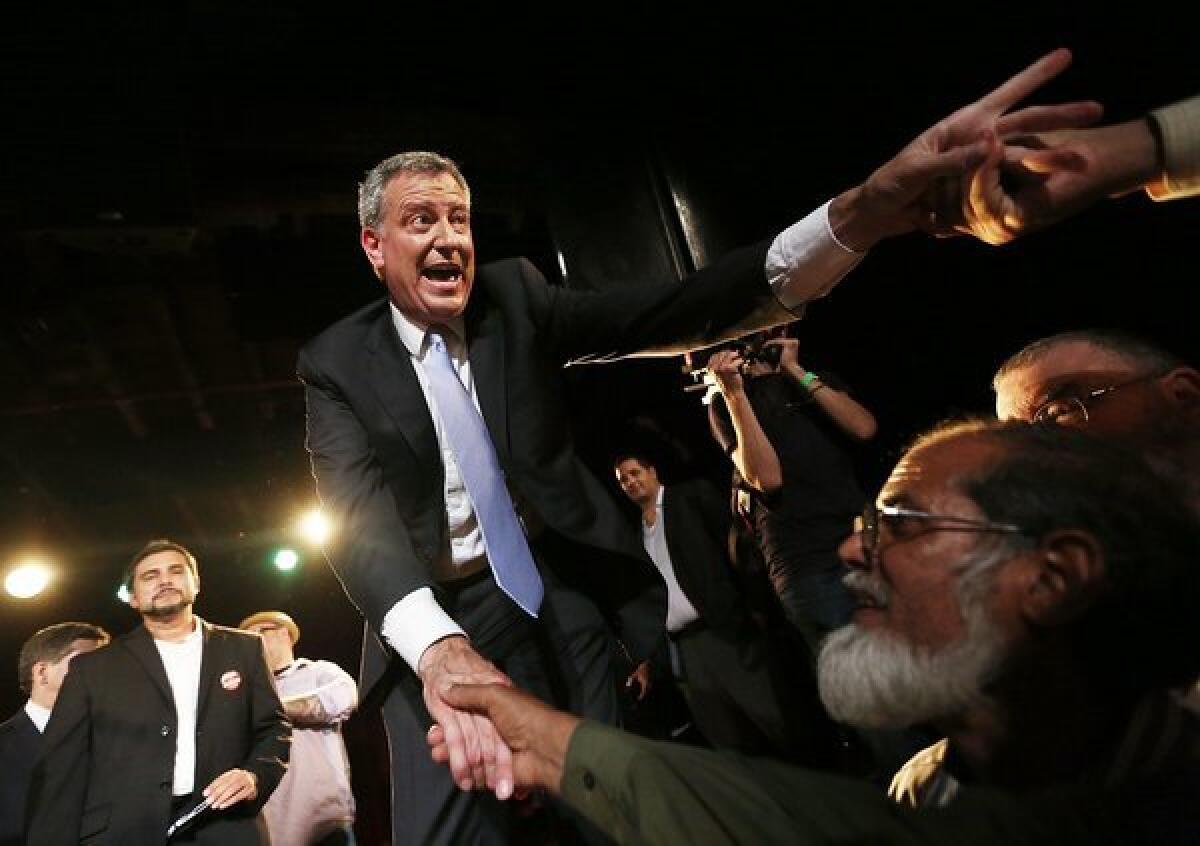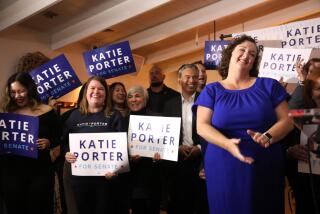Election night lessons: Three truths amid the clamor

Politics addicts across the nation will engage today in the post-election tradition of gleaning great, defining truths from smallish, specific races. Much of the time, singular election results are just that, a reminder that all politics is local. But a few clear lessons did emerge from Tuesday’s two hallmark contests:
Opposites really do attract.
Bill de Blasio’s sweeping victory in the Democratic primary for New York mayor rested at least in part on the fact that he campaigned against the image and policies of the incumbent, billionaire Michael Bloomberg. De Blasio, the city’s public advocate, campaigned against Bloomberg’s fiscal and law enforcement policies, and his victory was taken as a repudiation of Bloomberg’s three terms as mayor. It was, as well, an acknowledgment that politics moves in cycles, often whiplashing 180 degrees.
Thus, Los Angeles elected the earnest Eric Garcetti after two riotous terms under Antonio Villaraigosa, much as Villaraigosa had triumphed over the more staid James K. Hahn. Bloomberg himself was a departure from his predecessor, Rudy Giuliani, coming in as a business-minded technocrat after Giuliani’s late-term romantic meanderings. Sometimes the switch has to do with policy proposals, but often it seems to rest on personality, style and political approach.
Money isn’t everything.
He certainly has the resources to cushion his fall, but Bloomberg suffered through a tough Tuesday. The outgoing mayor slammed de Blasio in the closing days of the campaign, only to see him win going away, powered by his criticism of Bloomberg. Bloomberg also watched two Colorado lawmakers who championed gun control go down in a historic recall.
Bloomberg donated to efforts benefiting the losing lawmakers, and the organization he founded, Mayors Against Illegal Guns, was a major target of the anti-gun-control victors. It was a sharp reversal of his success against gun enthusiasts in an Illinois congressional special election earlier this year.
This is not the year of the woman.
Women already are fanning out on behalf of Hillary Clinton’s unannounced presidential campaign in 2016, but their gender’s candidates have had a mediocre 2013. This spring, Wendy Greuel lost her bid to become the first female mayor of Los Angeles. On Tuesday, Christine Quinn, once the front-runner in New York’s mayoral race, came in a distant third. She was seeking to be the first woman, and first openly gay, mayor of the city.
What does this mean for Clinton’s potential reach for history? Nothing.
The argument can be made that the expansion of visible female politicians -- their number in the Senate is at a record high -- has effectively lessened the stakes for individual women running for office. Why sweat electing a woman as mayor, Los Angeles Democrats might shrug, when both your senators and most of your congressional delegation members are female?
That goes out the window, however, when a woman is running for a seat no woman has ever held: president. Cracked or not, the glass ceiling shimmers, like a target.
cathleen.decker@latimes.com
Twitter: @cathleendecker
More to Read
Start your day right
Sign up for Essential California for news, features and recommendations from the L.A. Times and beyond in your inbox six days a week.
You may occasionally receive promotional content from the Los Angeles Times.







